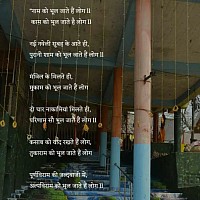The NDMA stands for National Disaster Management Authority, which is the apex body in India for disaster management. Here's a concise and informative overview:
National Disaster Management Authority
The National Disaster Management Authority (NDMA) is the primary agency responsible for formulating policies, plans, and guidelines for disaster management in India. It functions under the Ministry of Home Affairs and is chaired by the Prime Minister of India.
🏛️ Legal & Institutional Basis
The Disaster Management Act, 2005 mandates that each state establish its own State Disaster Management Authority (SDMA). In Chhattisgarh, the CG‑SDMA was formally constituted on 1 August 2007 .
Chaired by the Chief Minister, the CG‑SDMA includes the Revenue & Disaster Management Minister as Vice‑Chair and the Secretary of that department as Member‑Secretary .
District Planning Framework
State Disaster Management Plan
CG‑SDMA oversees the drafting and implementation of the Chhattisgarh State Disaster Management Plan, aligned with NDMA’s national plan.
It provides frameworks for vulnerability mapping, early warning systems, institutional coordination (State Executive Committee and DDMAs), role clarity across departments, and community engagement.
🔄 District Disaster Management Plans (DDMPs)
Encouraged at the district level; several draft DDMPs are available (e.g., for Gaurela‑Pendra‑Marvahi) .
🔥 Sectoral/Sub‑Plan Guidelines
Standard operating protocols (SOPs), flood preparedness advisories, fire safety plans, drought mitigation strategies, and summarised modules for specific hazards (lightning, snake‑bite) are publicly accessible on the CG‑SDMA portal .




